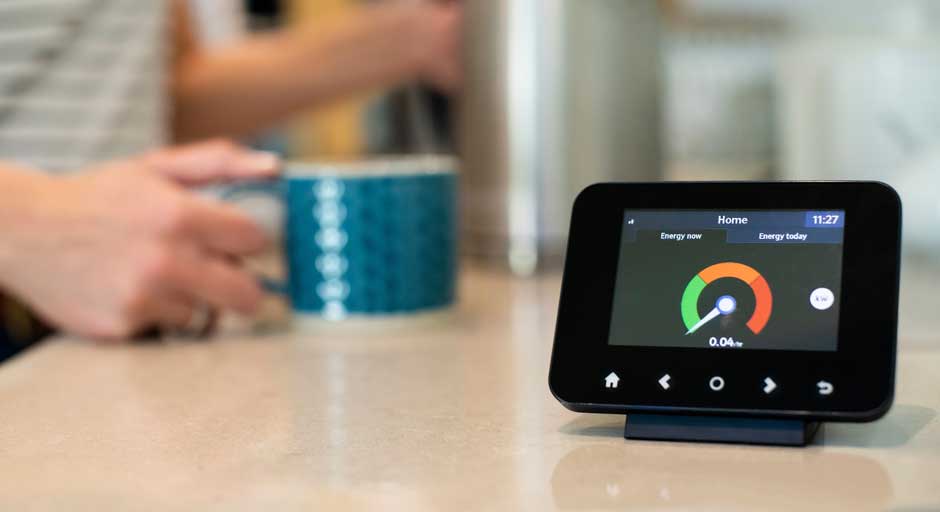
Rapid advances in computer technology offer many potential advantages for the propane distributor. Propane tank monitoring systems are one example of this. However, distributors should also be aware of the new potential legal liabilities that can come along with these attractive new technologies. A July 5 decision involving a natural gas smart meter offers a good example. The case is James v. Baltimore Gas & Electric.
‘Smart Meter’
In August 2020, Robin and Leroy Johnson hired a local contractor to install an air conditioning unit and gas furnace at their rental property in Baltimore. Natural gas was provided to that location by Baltimore Gas & Electric (BG&E). The gas meter at the Johnson property was a “smart meter.” Under BG&E’s Advanced Meter Infrastructure (AMI) program, gas meters like the one at the Johnson property were equipped with computerized data collection and transmission capabilities. Specifically, the smart meter at the Johnson property would collect gas usage data and apparently transmit that data to BG&E in real time.
Uncapped Line
Terry James was a tenant at the property when the contractor began its work on Aug. 9. That afternoon, the workers shut off the gas meter valve that controlled the flow of natural gas to the house. They then disconnected a gas appliance (probably the old gas furnace). The gas usage data collected by the smart meter showed that the valve was shut off around 4 p.m.
The workers did not finish the installation that day, so they planned to return the next day. When the workers left the property, they did not cap the gas line for the appliance they had disconnected.
A Spike in Usage
After the workers left, James remained in the residence. At some point, he smelled gas inside the building, and he called Leroy Johnson. Johnson arrived at the house later that evening. According to James, Johnson checked the gas meter while James lit the burners on the gas stove. Meanwhile, no one called BG&E to report the odor of gas.
Early the next morning, around 1:30 a.m., the gas meter valve was opened. There was no explanation stated in the court opinion for why this happened in the middle of the night. However, the data transmitted from the gas meter clearly showed that at that time the gas usage abruptly jumped from zero cubic feet per hour to 476 cubic feet per hour. It is also unclear from the court opinion how Johnson could have lit the pilots on the gas stove earlier that evening, hours before the valve was opened.
Explosion
In any case, from 1:30 a.m. onward the gas valve was open and gas was flowing through the open line that had been left by the workers earlier the previous day. James woke up that morning around 8 a.m., and he went to the gas stove to make breakfast. When James turned on the stove, an explosion leveled the residence and two adjacent row homes. Firefighters rescued James from the rubble. He was seriously injured.
BG&E was not involved in the work that resulted in the open line at the Johnson property. No BG&E service technician entered the house during the approximately 16 hours the gas line was left open before the explosion. BG&E had no notice of the work being done.
James clearly smelled gas, but no one called BG&E to report the odor of gas. So, logically BG&E might not expect a lawsuit based on the incident. But there had been a smart meter on site collecting and transmitting data regarding gas usage.
Real-Time Data
James did indeed file suit against BG&E. He argued that BG&E had breached its alleged duty to “monitor and detect natural gas leaks or excess gas flow, respond promptly to reports, data notification or complaints of gas leaks and/or excess gas flow.” He retained an expert who stated that “BG&E’s smart meter technology at all relevant times allowed it to receive real-time data regarding gas pressure and usage throughout the system as well as its ability to remotely turn service on and off at a customer’s home.”
The expert added that “BG&E had the ability to respond to a spike in gas usage at 4232 Labyrinth Road [the Johnson property] either by immediately sending a service technician or by shutting the gas off remotely.”
While the general rule varies from state to state, the traditional standard of care for gas suppliers is that if a gas supplier has notice of an actual or potential gas leak (such as if the customer calls to report gas odor or a technician observes an open gas line), the supplier must take action to shut off the gas or investigate. Here, James’ expert was arguing that the smart meter told BG&E of the spike in gas usage in real time, and that it therefore gave BG&E notice of the gas leak.
Unqualified Expert
BG&E took the deposition of the expert, who admitted that he was not offering an opinion on the standard of care, and stated that “he lacked fundamental knowledge about BG&E’s Advanced Meter Infrastructure and BG&E’s data analysis capabilities.” BG&E then filed two motions: 1) a motion for summary judgment dismissing the case, because James offered no expert testimony on the standard of care; and 2) a motion to disqualify the expert on the ground that he lacked sufficient credentials to provide the jury with his opinions.
The court granted both motions, dismissing the case. James appealed. On appeal, the Maryland Court of Appeals affirmed both rulings of the trial court. Summary judgment in favor of BG&E was proper, it held, because James was required to present expert evidence on the standard of care, and he did not. As to the motion to disqualify James’ expert, the court stated:
“His deposition testimony showed that he lacked knowledge about three key topics. First, he did not know what an AMI was. Second, he did not know what components are necessary for smart meters. Third, he did not know how smart meters transfer data. Knowledge on these topics was necessary to provide expert testimony on the central issue of the case: BG&E’s ability to analyze and respond to data that showed elevated gas levels. The court properly excluded him as unqualified.”
Smart meters are not common in the propane industry. But, given the advancing state of technology, the James case does offer a warning signal to the industry of potential issues to come for propane suppliers.


